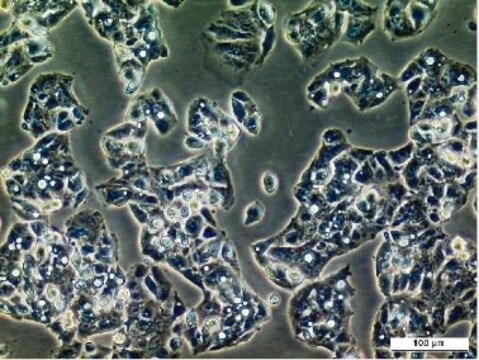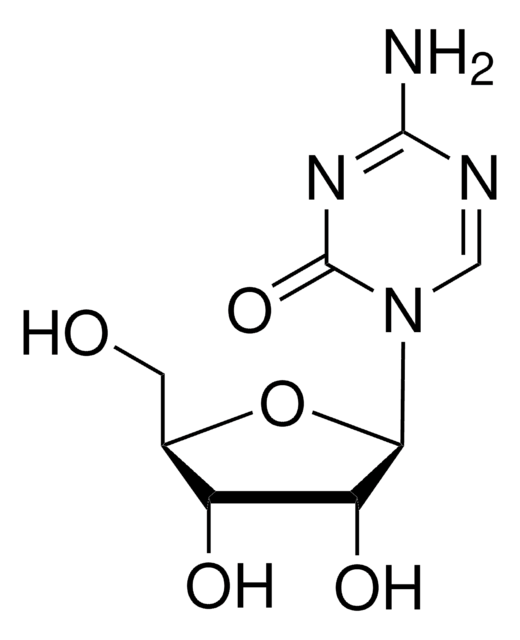LA-N-2
6041202, human nerve, Large elongated cells + small round cells in clusters
Sign Into View Organizational & Contract Pricing
All Photos(1)
About This Item
UNSPSC Code:
41106514
Recommended Products
product name
LA-N-2, 06041202
biological source
human nerve
growth mode
Not specified
karyotype
Modal no. 73, range 46 - 73
morphology
Large elongated cells + small round cells in clusters
products
Not specified
receptors
Not specified
technique(s)
cell culture | mammalian: suitable
relevant disease(s)
cancer
shipped in
dry ice
storage temp.
−196°C
Cell Line Origin
Human Neuroblastoma
Cell Line Description
Established by Seeger et al., (1977) from the primary site of a noncatecholamine-producing neuroblastoma of a 3-year-old female with clinical Stage IV neuroblastoma. The culture consists mostly of large, elongated cells with processes with some small round cells adhering to the elongated cells. The cells are tumourigenic in nude mice.
Culture Medium
EMEM (with non-essential amino acids) and Ham′s F12 (1:1 mixture) + 2mM Glutamine + 10% Foetal Bovine Serum (FBS)
Subculture Routine
For routine maintenance, split cultures after they have become dense i.e. once every 3-4 weeks at a 1:20 to 1:50 ratio; 8% CO2; 37oC. The culture consists of large elongated cells with processes and small round cells. The latter tend to grow in dense clusters on the former and detach readily. Most cells are moderately adherent. Remove attached cells from the substrate with trypsin/EDTA. Cells will detach in 5-10 minutes. When resuscitated from a frozen ampoule cells may appear dead after a day but reattach and resume growth within 2-3 days. Cells grow best and are most adherent on a plastic substrate in medium at a pH of 6.9 - 7.2; they do not tolerate more alkaline pH well. Cultures hold well at high density with periodic medium changes.
Other Notes
Additional freight & handling charges may be applicable for Asia-Pacific shipments. Please check with your local Customer Service representative for more information.
Certificates of Analysis (COA)
Search for Certificates of Analysis (COA) by entering the products Lot/Batch Number. Lot and Batch Numbers can be found on a product’s label following the words ‘Lot’ or ‘Batch’.
Already Own This Product?
Find documentation for the products that you have recently purchased in the Document Library.
Our team of scientists has experience in all areas of research including Life Science, Material Science, Chemical Synthesis, Chromatography, Analytical and many others.
Contact Technical Service




